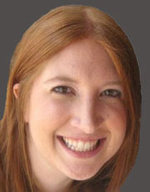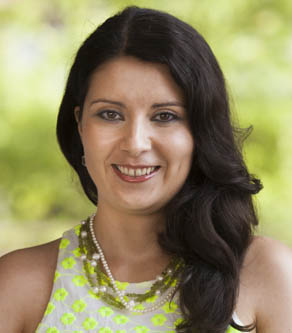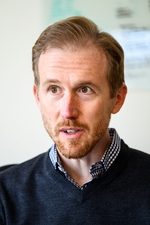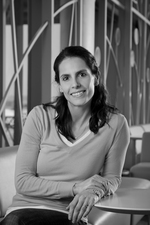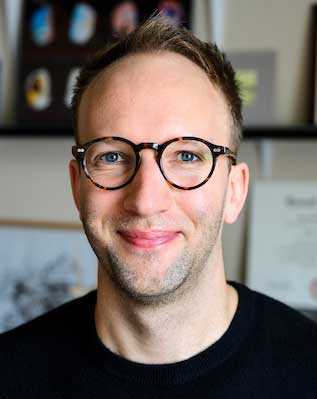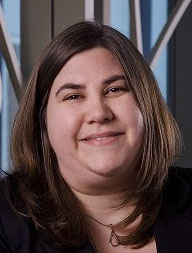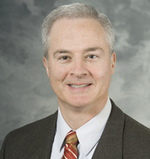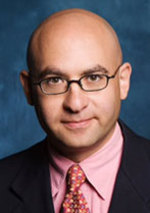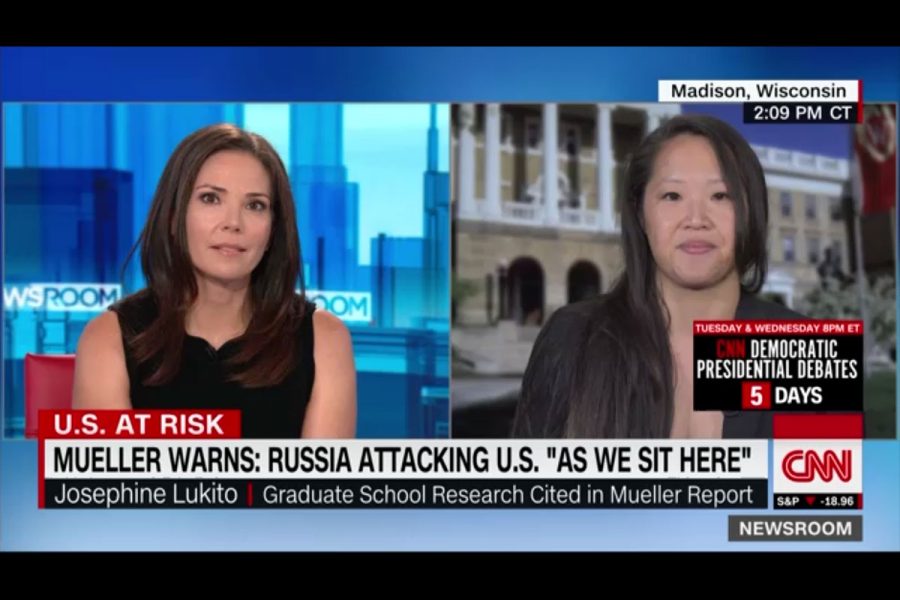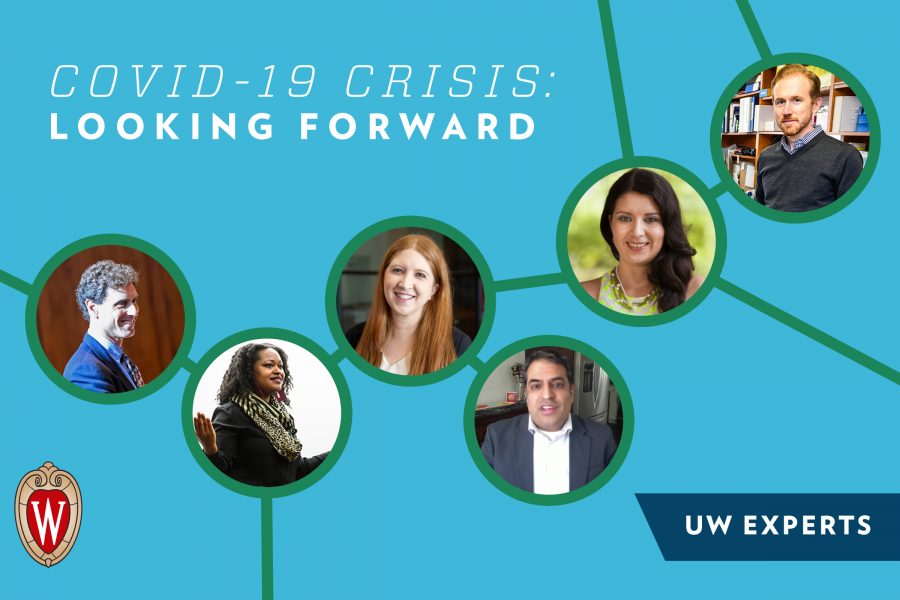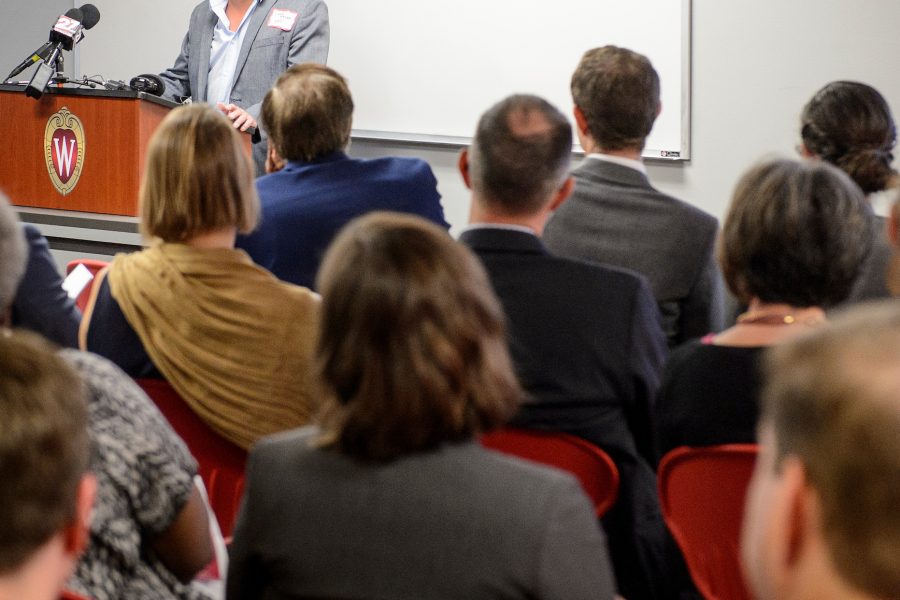The COVID-19 Crisis: Looking Forward
As the effects of COVID-19 linger in the United States, experts from the University of Wisconsin–Madison are available to discuss tips, research and the latest trends related to the pandemic. Our experts database helps media outlets discover and book UW–Madison experts, on deadline.
Ajay Sethi
The Delta variant surges
While the U.S. and many parts of the world are re-opening, the highly contagious Delta variant is surging in many areas. Ajay Sethi, an expert in epidemiology and population health, says all three vaccines in use in the U.S. are highly effective against the Delta variant and urges eligible, unvaccinated people to get started on the vaccine as soon as possible.
Nancy Wong
Retail therapy
While people stocked up on toilet paper and cleaning essentials during the height of the pandemic, now shoppers are pivoting to items such as cosmetics and colorful clothing. Nancy Wong, an expert on consumer decisions and luxury marketing, can discuss this shift to spending money on products that speak to optimism and being together.
Tony Goldberg
Epidemiology after COVID-19
Epidemiologist Tony Goldberg is availble to discuss how the study of emerging pathogens has changed in light of the COVID-19 pandemic.
“COVID taught me that pandemics are like stock market crashes,” says Goldberg. “You know they’re going to happen, but you can’t predict when or how bad they’ll be. Coming up with better ways to forecast these seemingly random events is the next frontier in biology and computer science, in my opinion.”
Haley Vlach
Will your memory bounce back after the pandemic?
Haley Vlach is an associate professor of educational psychology and an expert in memory development. Vlach says the pandemic was a challenge for short-term and long term memory retrival, but says, given the opportunity, our brains and memory development capacity should bounce back as we resume our lives after the pandemic.
Catalina Toma
Online dating profiles adding vaccination status
Are you vaccinated? It could be an awkward dating question during COVID-19 times. But the Biden administration announced Friday that it’s teaming up with dating apps to add vaccination badges and “super swipes” for people who’ve gotten their coronavirus shots.
Catalina Toma, an expert on the social and psychological effects of communication technologies (online dating, social networking sites, email, instant messaging, etc.), can discuss.
Bianca Baldridge
The role of community-based afterschool programs
Bianca Baldridge, an expert on afterschool education and assistant professor in the department of educational policy studies, says the halt of community-based afterschool programs due to the pandemic brought overlooked losses to school-age children including meaningful connections to adults; opportunities to imagine, create and organize; and quiet spaces to work.
Thomas Friedrich
Burnout among scientists, viral sequencing framework, improving the regulatory environment
Thomas Friedrich is a professor of pathobiological sciences and an expert on pandemic viruses. He is available to provide analysis on viral sequencing and its application for other emerging pathogens; a regulatory environment that nimbly supports research and diagnostics while still prioritizing safety and privacy; high burnout rate among scientists, medical professionals, and public officials; and the career development of junior scientists.
Sarah Halpern-Meekin
Learning in a pandemic
Sarah Halpern-Meekin, Associate Professor of Human Development and Family Studies, and of Public Affairs, is an expert in romantic relationships and low-income families’ finances, and her research includes examining how social poverty shapes people’s well-being and decisions. She can address how children’s learning and connections to supportive adults and institutions outside their homes were disrupted, and not equally across all children.
Jirs Meuris
Reimagining the post-pandemic workplace
Working from home was a huge adjustment for many. But now, employees and employers are rethinking the workplace. Jirs Meuris, an expert on human resource practices, can discuss.
“Preferences have changed for remote work,” Meuris says. “To understand the consequences of that, we have to look at both sides — the employees and the employers.”
Dave Weimer
The true value of the pandemic dog
Many people adopted dogs during the pandemic. Now that the pandemic is waning, will they keep them? Dave Weimer, a professor of public affairs and political science, is available for interviews about his research on the cost-benefit relationship of dogs and why it matters.
Evan Polman
The pandemic made us more authentic on social media
Evan Polman, an associate professor of business at the Wisconsin School of Business and an expert on behavioral science, is available for analysis of how we’ve changed our behavior on social media.
Polman says, “The pandemic has normalized more authenticity on social media. Instead of browsing through over-idealized posts by influencers, people are more interested in honest posts — sloppier posts! — and I think this trend is here to stay. There will be more attention to posts showing a less polished, more realistic slice of life.”
Heather Kirkorian
Time to wean kids from excessive screen time?
Heather Kirkorian, an expert on the impact of screen media on young children and an associate professor of human development and family studies, is available for interviews about how parents and caregivers can re-think how much screen time is appropriate for children with the approach of summer and the ebbing of the pandemic in the United States.
“To manage screen time, families should establish clear and consistent expectations about when, where, how, and with whom screens can be used. A good family media plan will focus on educational content, healthy social connections, and lots of conversation about what kids are doing on screens.”
James Conway
Kids and vaccines
Dr. Jim Conway, professor of pediatrics at the UW School of Medicine and Public Health, and an infectious diseases and vaccine expert at UW Health, is available for interviews on the timing and safety of vaccinating children.
Denia Garcia
Racial inequalities of pandemic impact and recovery
Denia Garcia, an expert on the ways in which inequalities are experienced and reproduced, can discuss how the pandemic has exacerbated racial inequalities across health, social, and economic outcomes, with long-lasting consequences.
Malia Jones
COVID safety for kids and families
Malia Jones, an expert on infectious disease and environment, is available for interviews on how to assess which activities are safe for unvaccinated children and their families.
Hart Posen
Changes to businesses during COVID-19
Hart Posen, an expert on business strategy, can comment on how businesses have adapted during COVID-19 with things like curbside pickup, and if those changes are likely to stay.
Media Resources
Live shot broadcast studio
UW–Madison experts can appear in live or taped interviews at our remotely controlled VideoLink ReadyCam® studio on campus.
Experts Database
Need an expert source? UW-Madison faculty and staff are ready to comment on breaking news, ongoing developments and trends in their areas of expertise.
More media resources
Our team of media relations professionals are here to help share the best of UW–Madison with the world.




